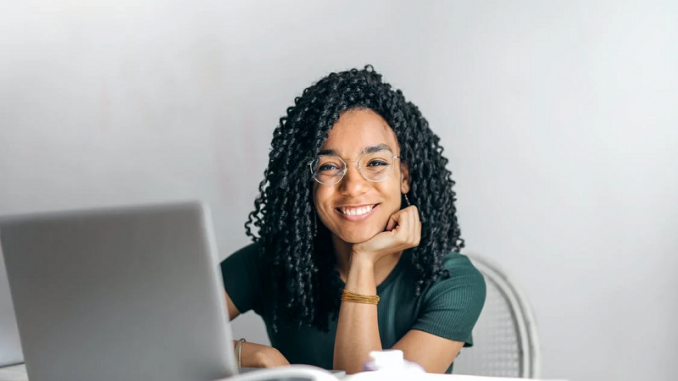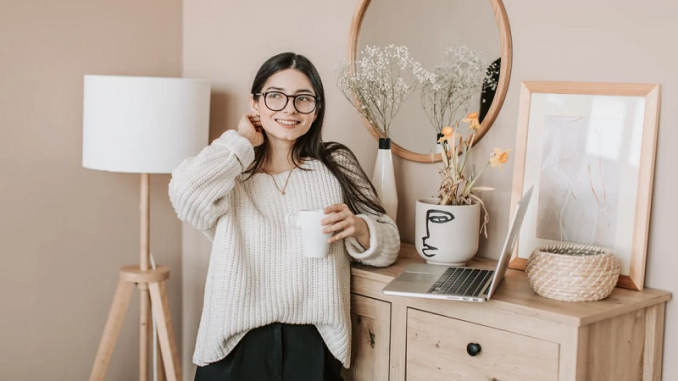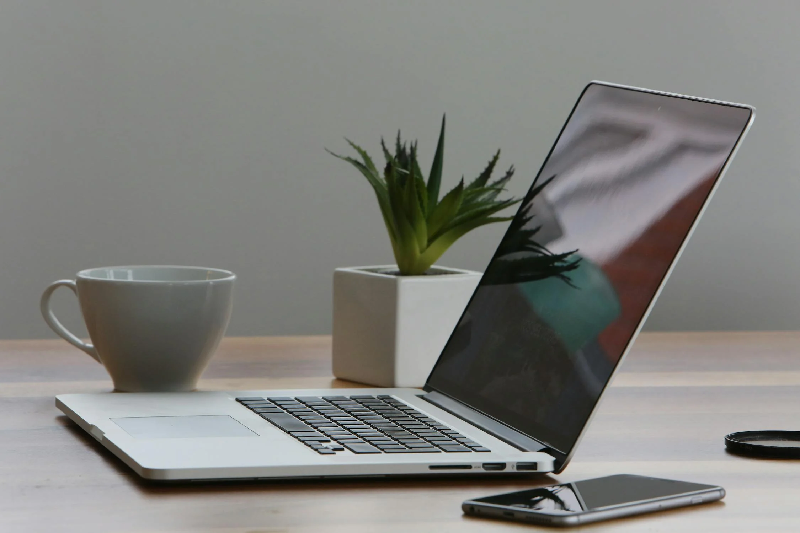
Looking at a computer or other digital device for extended periods of time can be harmful to your eyes, thanks to the high levels of blue light they emit. To reduce your risk of eye strain and other negative side effects, follow these essential tips for reducing blue light exposure while using a PC.
1. Adjust your screen settings
If you want to reduce the amount of blue light exposure you get while using a PC, one of the best things you can do is adjust your screen settings. Most PCs have a setting that allows you to change the color temperature of your display and reduce eye strain. By making your display warmer (lowering the color temperature), you can reduce the amount of blue light that it emits.
In addition to changing the color temperature, there are other settings that you can adjust to further reduce blue light exposure. Many PCs allow you to enable “night mode” or “dark mode,” which inverts the colors of your display and makes it easier on your eyes in low-light conditions. There are also software programs that allow you to filter out blue light, such as f.lux and Iris.
You can also look for a blue light filter setting on your PC or device. Many devices have a built-in setting that allows you to reduce the amount of blue light emitted from the screen. If your device does not have a built-in setting, you can download a software filter or app that will do the job for you. Be sure to adjust the settings on your filter or app so that it is comfortable for you to look at the screen. You may need to experiment with different settings before you find what works best for you. Remember to turn off the filter or app when you are done using your device so that you can get the full benefit of blue light during daytime hours. Keep in mind that blue light filters are not a complete solution to reducing digital eye strain. In addition to using a filter, it is also important to follow healthy habits like taking regular breaks from your screen and getting enough sleep at night.
2. Use blue-light-blocking glasses
Another way to reduce blue light exposure from your PC is to use glasses that block blue light. These blue light glasses work by filtering out the blue light that is emitted by your display, which can help to reduce eye strain and fatigue. There are a variety of different brands and styles of blue-light-blocking glasses available, so you should be able to find a pair that suits your needs. You can find them at any eyecare store near you, or even online if you don’t have access to one nearby. Using these specialized glasses prevents blue light from decreasing our natural production of the sleep hormone melatonin. You can sleep better even after working using your PC for a long time.
3. Take regular breaks from screen time
One of the most important things that you can do is take regular breaks from screen time, especially if you’re looking to reduce your blue light exposure. When your eyes are focused on something for an extended period of time, they can become fatigued and strained. By taking regular breaks away from your screen, you give your eyes a chance to rest and recover from their efforts. If possible, try to take a break every 20 minutes or so to give your eyes a rest. During your break, you can do something else that doesn’t involve looking at a screen, such as reading a book or taking a walk. Also, looking at neutral and cool colors can help your eyes relax. A gentle massage around the eye sockets can also improve the blood flow around your eyes and help them recover. When you do return to your screen, try to look away frequently and blink often to keep your eyes lubricated.
4. Get up and move around frequently
There are several reasons why getting up and moving around frequently is an essential tip for reducing blue light exposure while using a PC. First, doing so allows you to avoid long periods of sitting in one position without changing posture, which can lead to musculoskeletal issues such as repetitive strain injuries or repetitive stress injuries (RSIs). Secondly, it helps increase your overall blood circulation steadily throughout the day, which can not only help keep your energy levels elevated but also prevent eye strain caused by reduced blood flow in your visual system. Finally, getting up and walking around frequently gives your eyes a much-needed break from screen time, allowing them to rest and recover from being exposed to harmful blue light rays emitted from your computer monitor.
5. Keep your devices clean and dust-free
We are all familiar with the importance of maintaining good hygiene in our everyday lives. However, did you know that keeping your electronic devices clean and dust-free is also an essential part of reducing blue light exposure?
Dust and other small particles can act as a lens, magnifying the blue light that comes from your screen and increasing the amount that enters your eye. Over time, this can lead to digital eye strain and other problems. So, make sure to regularly clean your screens with a soft, dry cloth. If you use a laptop or tablet, you can also invest in a screen protector to help reduce the amount of blue light that reaches your eyes.
6. Get an annual eye exam
If you spend a lot of time in front of screens, it’s important to get an annual eye exam to check for any vision problems that may have developed. This is especially important if you have a family history of vision problems. By getting your eyes checked regularly, you can catch any issues early and prevent them from becoming worse.
In addition, if your blue light exposure is causing severe health issues such as sleep disorders or persistent eye strain, talk to your doctor about possible treatment options that may work for you. There are many different treatments available depending on the severity and cause of your symptoms.

By following these tips, you can help reduce your risk of eye strain and other negative side effects associated with blue light exposure. Remember to take breaks often, adjust your screen settings, and use blue-light-blocking glasses whenever possible to give your eyes the best chance of avoiding damage.

